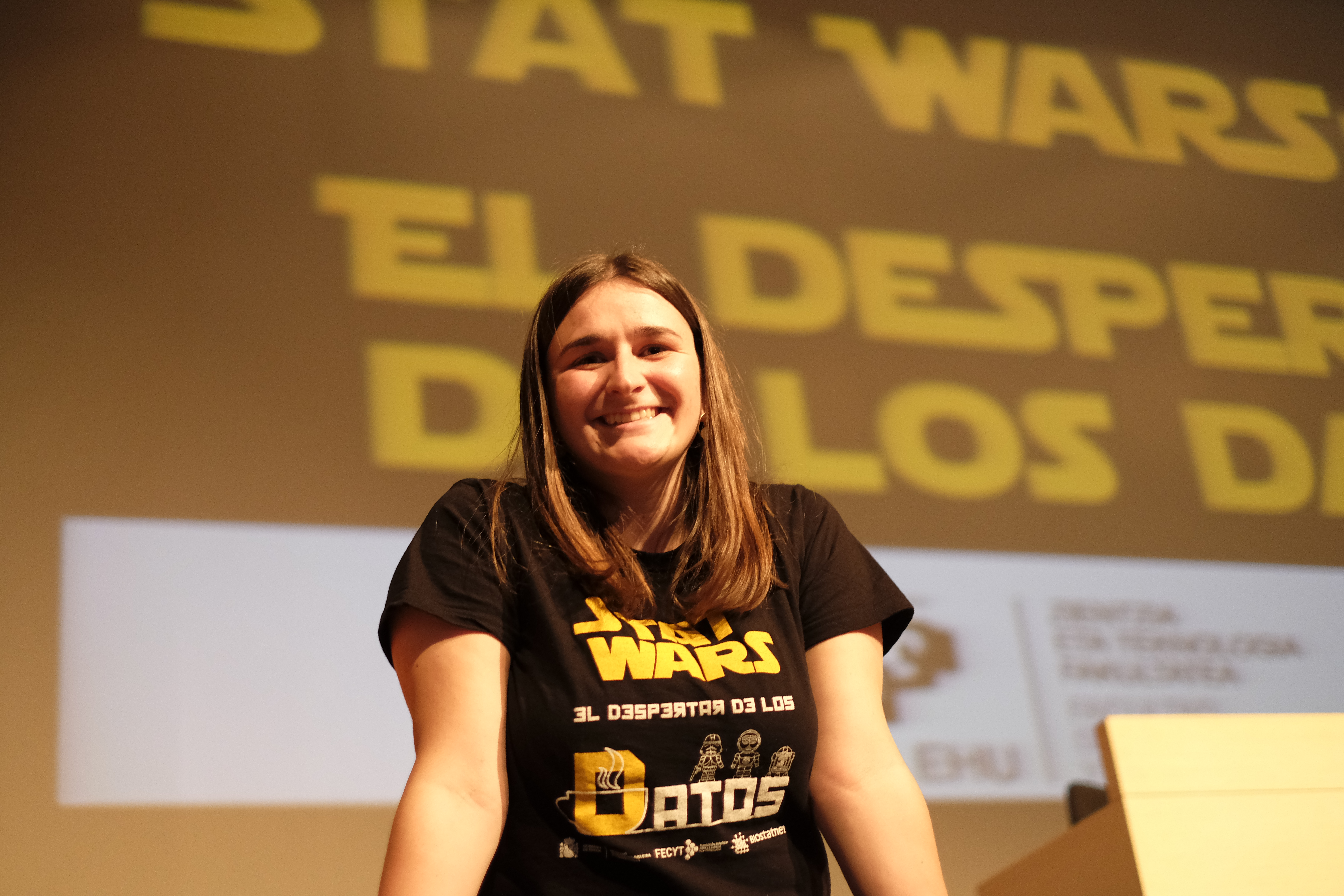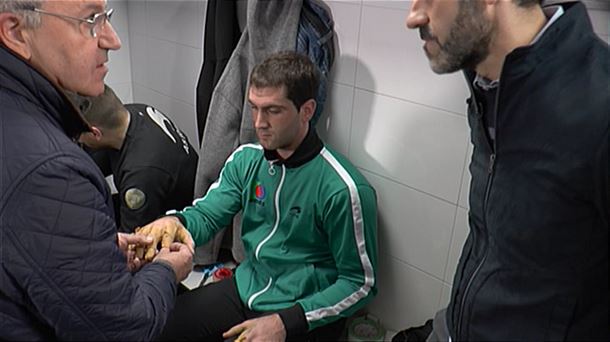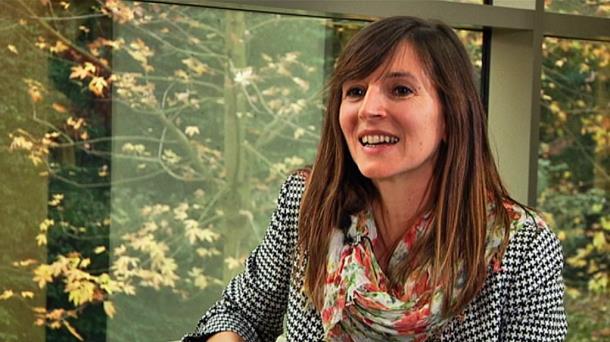“I feel I need to be referent women”
2023/03/03 Galarraga Aiestaran, Ana - Elhuyar Zientzia Iturria: Elhuyar aldizkaria

Mathematics has a bad reputation, it is difficult, abstract, useless… These kinds of beliefs are widespread in society. Amaia Iparragirre Letamendia is mathematical and has no trace of where that bad reputation comes from, “I liked childhood”, he says. And he doesn't know why they'll have bad fame, maybe because they're abstract. It stresses, however, that although they work abstractly, they are directly related to everyday life and the environment. In addition, it has always adapted well to mathematics. "Mom was also a tourism teacher, so I've also received this hobby in my house, and I've never felt that mathematics wasn't right for me or I shouldn't like it. It's been very natural to me."
Currently, the doctoral thesis in statistics is being developed, specifically in the development and validation of predictive models with data from surveys based on complex design sampling. He explains that predictive models are widely used today. The objective is to predict the future from the available data. "My thesis is characterized by wanting to adjust these types of models to a certain type of data. This type of data has been common in statistics, but predictive models have not been adjusted so far. So my goal is to connect those two areas.”
He states that these models have a correct application, and that is that when he started his thesis he started out with a real problem. Examples are also given: "For example, in the pandemic they have been used extensively and are generally used extensively in medicine. For example, from the data we have now, we might be interested to know how many beds we will have available next week or next month. To do so, we would need predictive models.”
The importance of women referents
This type of development, of interest to society as a whole, has had an evolution in the interest in learning mathematics, in which until a few years ago women were the majority, while in recent years men are predominant. Iparragirre has witnessed this change: "When I studied mathematics we were more women and since then it hasn't been too long, but today there are more men. I don't know why it can be, but I think the rise of men coincides with the name that mathematics is taking in society. Perhaps, the more famous mathematics is and the more they relate to the business world, the more men learn mathematics.”
It believes that this can have consequences. "For example, it can lead to changes in the topics under investigation. To the detriment, of course, because right in society our goal is another. We are looking for a certain equality of ideas, and here we seem to be seeing the opposite." To change this, he considers it very important to have references: "I don't know if it will be enough, but I've had a lot of female referents in both math learning and research, my two thesis directors are women, and in the state, when we get together with other mathematicians, a lot of them are women. And all of these women are referents to me, and I feel it's necessary for them to be referential women. Therefore, I believe it is also important for society to give voice to these profiles.”

Gai honi buruzko eduki gehiago
Elhuyarrek garatutako teknologia







